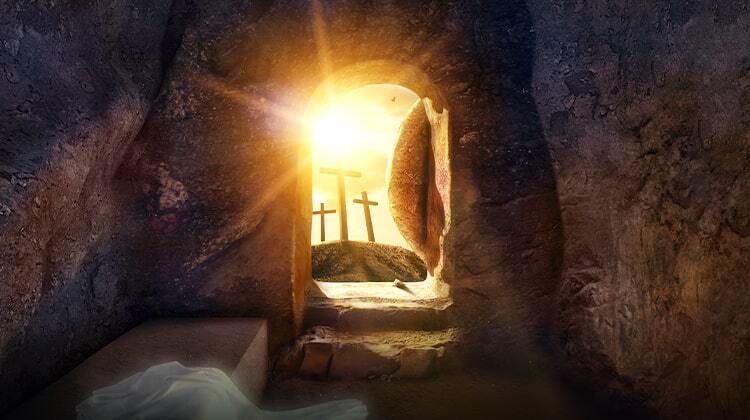Easter around the World: A Celebration of Faith, Culture, and Community - ENA English
Easter around the World: A Celebration of Faith, Culture, and Community

Easter Around the World: A Celebration of Faith, Culture, and Community
Addis Ababa, April 19, 2025 (ENA)-–- Easter, one of the most profound and widely celebrated Christian holidays, is marking the resurrection of Jesus Christ from the dead.
For believers, it is a time of reflection, renewal, and hope. Yet beyond its spiritual roots, it is also a reflection of cultural diversity, where age-old traditions meet local customs and community spirit.
Christians observe this sacred season with unique expressions of faith around the world, from solemn rituals and processions to joyful feasts and family games.
Therefore, this article explores how Easter is celebrated worldwide, revealing the rich variety of practices that reflect both religious devotion and the beauty of local heritage.
Observed on April 18th in 2025, Good Friday marks the crucifixion and death of Jesus Christ. Dating back to the 4th century, this solemn day is steeped in prayer, mourning, and reflection. Across the globe, Christians fast, attend church services, and participate in Passion rebuilding, remembering the immense sacrifice that precedes the joy of the Resurrection.
In Ethiopia and Eritrea, Easter is called Fasika and it is preceded by a 55-day fast where only vegan food is consumed. Holy Week is marked by Palm Sunday processions and Good Friday services, while Easter Sunday is a joyous occasion with communal church services. Families celebrate with traditional meals such as dorowot (spicy chicken stew) served with injera, and gatherings that emphasize community and togetherness.
Coptic Orthodox Christians in Egypt observe Holy Week with deep spiritual devotion. Rituals include Palm Sunday processions, Good Friday observances, and a Holy Saturday watch with a theatrical "resurrection play." The end of a 55-day fast is celebrated on Easter Sunday with liturgies and large shared meals.
In Lebanon, Easter combines spiritual significance with local customs. The week before Easter features processions and solemn services. On Easter Sunday, a midnight mass is followed by jubilant services, a festive meal, and sharing maamoul cakes. Egg battles add excitement, emphasizing family unity and togetherness.
Palestinian Christians celebrate Easter with a deep connection to the Holy Land, where Jesus was born, lived, and died. They celebrate together according to the Eastern Orthodox calendar, with unique customs like Palm Sunday procession, Good Friday remembrances, and Easter Sunday's egg dyeing and game playing.
Syrian Christians celebrate Easter following the Julian calendar, with unique traditions including Palm Sunday procession, Last Supper remembrance, solemn services, and bitter choruka beverage.
The Indian Christians celebrates Easter with Holy Week procession, reenacting the Last Supper on Maundy Thursday, mourning on Good Friday, and early services on Easter Sunday.
Bulgarian Christians Easter, or Velikden, involves dyeing red eggs to symbolize Christ's blood, baking sweet kozunak bread, and attending a midnight Resurrection liturgy. It's followed by egg tapping, a grand feast, and playful water splashing on Easter Sunday and Wet Monday.
Christians in Russia, Belarus, and Ukraine shares traditions, including a midnight Paschal Vigil with "Christ is Risen!" and blessing baskets with kulich, paska, and eggs. Ukraine highlights intricate pysanky eggs, while Belarus and Ukraine remember the deceased.
In Romania, Easter begins with a 40-day Lenten period, followed by Palm Sunday's willow blessing, egg dyeing, and Pasca baking. Good Friday is somber, while the Resurrection Mass at midnight is a joyful celebration of Christ's triumph over death. The Holy Light symbolizes hope and new life, and food blessing fosters community and shared faith. Easter Sunday brings egg tapping, lamb dishes, and cozonac, with people greeting "Christ is Risen!
In Greece, North Macedonia, and Turkey, Orthodox Christians celebrate Easter with unique customs. In Greece, processions and midnight services are traditional. North Macedonia practices red egg dyeing, fasting, and family gatherings.
Rome transforms into a vibrant hub during Easter, blending religious traditions with cultural events. Highlights include Papal Masses, processions, and traditional activities. Cultural activities include exploring historical sites, visiting museums, and indulging in traditional food.
Easter in Spain, known as Semana Santa, is a significant religious and cultural event celebrated with grandeur and devotion. It features processions, music, incense, and flowers, with regional variations and unique traditions.
In France, Easter combines religion, folklore, and food, featuring traditions like Flying Bells, egg hunts, and family meals. Decorations include hand-painted eggs, Easter trees, and colorful eggs, accompanied by traditional dishes like lamb, regional specialties, and chocolate eggs.
Easter is a significant holiday in Canada and the US, blending Christian and secular traditions. Christians commemorate Jesus' resurrection with church services, while secular traditions include Easter egg hunts, the Easter Bunny, and family meals. Spring symbols represent new life and fertility.
In Brazil, Easter, or Páscoa, combines Catholic traditions with cultural mix, featuring chocolate eggs, Easter bunny, egg hunts, family meals, and flower carpets. Regional variations add indigenous, European, and African influences, with a significant commercial aspect promoting chocolate eggs and products.
Easter in the Philippines, Pasko ng Pagkabuhay, is a significant Catholic celebration. Holy Week includes Lent, Palm Sunday, Pabasa ng Pasyon, Visita Iglesia, and Maundy Thursday. Good Friday observes Jesus' crucifixion and death, while Easter Sunday features Salubong, Easter Mass, feasts, and egg hunts symbolizing new life and joy.
Easter is more than a religious milestone; it is a profound celebration of life, faith, and cultural identity. Across continents and communities, believers remember the resurrection of Christ through traditions shaped by history, geography, and family.
From candlelit vigils to colorful eggs, from ancient chants to children’s laughter, Easter reveals the human desire for renewal, unity, and hope. In every form it takes, Easter reminds us of the light that follows darkness and the joy that emerges from faith deeply lived and widely shared.